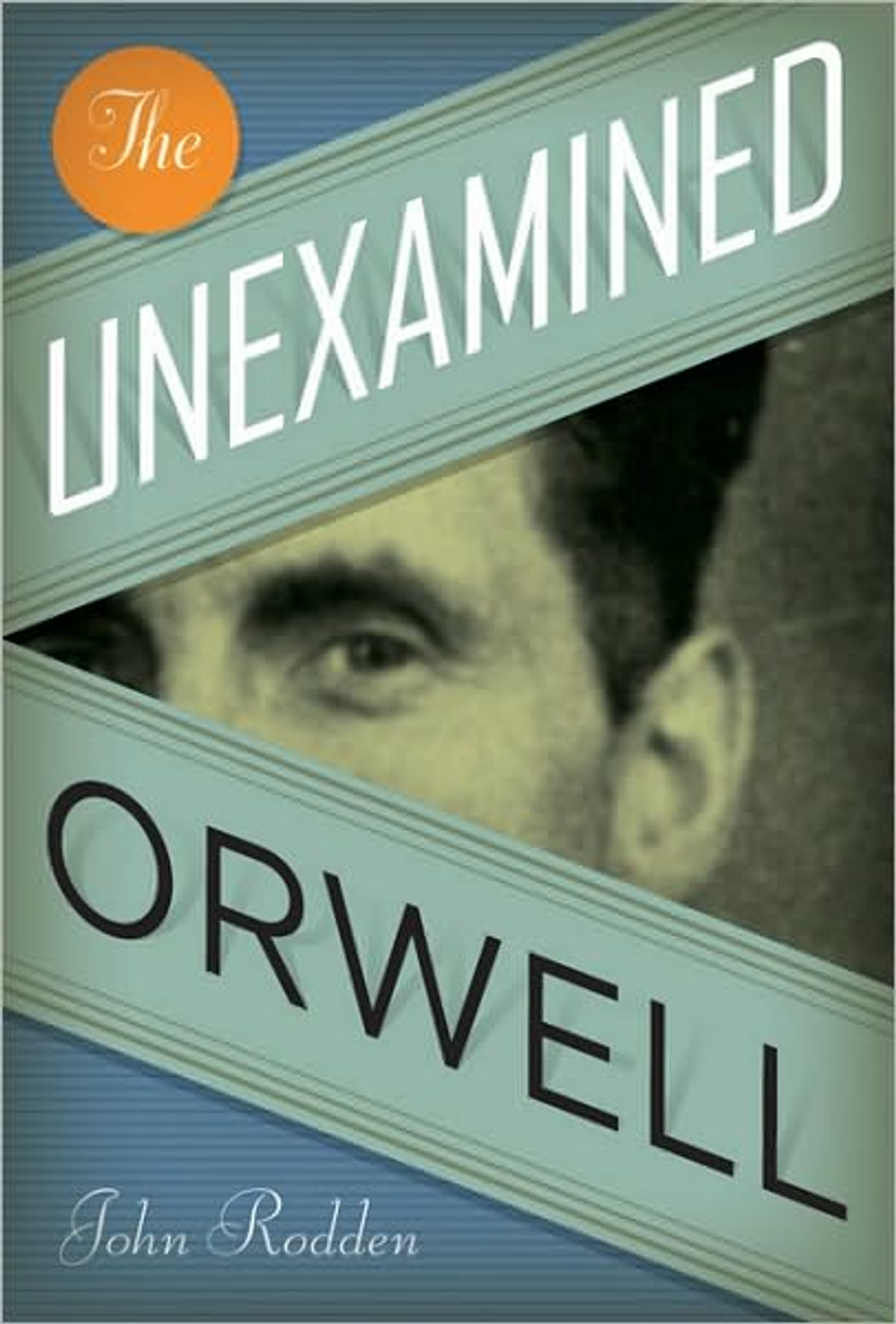If you were to make a list of all the adjectives that have been used to describe George Orwell, the most popular would be ethical ones: words like honest, decent, trustworthy. These are the qualities that have guaranteed Orwell, who died in 1950 at the age of forty-six, such an extraordinary intellectual afterlife. More than a novelist or journalist or essayist or literary critic, Orwell has become an icon of intellectual integrity -- one of the few writers to live through the 1930s, Auden's "low, dishonest decade," and emerge with his political and moral instincts uncorrupted. On the left, he's admired for his genuine socialist principles and personal egalitarianism; on the right, he's admired for the instinctive patriotism and love of English tradition that made him one of the best commentators on the World War II years. And to everyone who writes and thinks about politics, Orwell is the writer who most elegantly exposed the horror of totalitarianism and the degradation of language under the pressure of ideology. No wonder that, as John Rodden writes in "The Unexamined Orwell" (University of Texas Press), " scarcely a major Anglo-American issue has gone by since his death in January 1950 that has not moved someone to muse, 'If Orwell Were Alive Today,'" -- or, more reverently still, "W.W.G.O.D.?"
 For that very reason, however, just about the last word you could apply to the man born Eric Blair is "unexamined." He is the subject of numerous biographies and studies, and one of the rare twentieth-century authors to have been honored with a full-dress Collected Works -- a twenty-two-volume set. Of course, Rodden, who is the author of several books about Orwell's work and influence, knows this perfectly well. What he objects to is the way Orwell is too often replaced in the public imagination by " 'Orwell,' the myth, not the man or the writer" -- the image Rodden also refers to as "St. George." The purpose of this collection of essays is not so much to debunk the Orwell legend as to offer "fresh perspectives on him and his work, either by challenging broadly accepted appraisals of his achievement or pursuing new lines of inquiry about it."
For that very reason, however, just about the last word you could apply to the man born Eric Blair is "unexamined." He is the subject of numerous biographies and studies, and one of the rare twentieth-century authors to have been honored with a full-dress Collected Works -- a twenty-two-volume set. Of course, Rodden, who is the author of several books about Orwell's work and influence, knows this perfectly well. What he objects to is the way Orwell is too often replaced in the public imagination by " 'Orwell,' the myth, not the man or the writer" -- the image Rodden also refers to as "St. George." The purpose of this collection of essays is not so much to debunk the Orwell legend as to offer "fresh perspectives on him and his work, either by challenging broadly accepted appraisals of his achievement or pursuing new lines of inquiry about it."
This mission statement allows Rodden to range widely, resulting in a pleasantly miscellaneous book. In the first section, titled "If the Mantle Fits...," Rodden profiles a number of intellectuals who have been considered successors to Orwell. None of them resembles Orwell all that closely: Lionel Trilling is more exclusively literary, Dwight Macdonald less accomplished, John Lukacs more conservative, and Christopher Hitchens generally far less serious. What unites them is, first, a noble contrarianism -- the ability to see when their own political "side" was wrong and to say so publicly -- and second, an intense admiration for Orwell as thinker and stylist.
If these writers are Orwellesque, the culture of East Germany, to which Rodden turns in the book's second section, deserves the more familiar epithet Orwellian. His quotations from East German math textbooks, for instance, read like parodies of the propaganda in "1984:" "Workers in the GDR water industry presented 10 water pumps, valued at 40,000 marks, to the Democratic Republic of Vietnam, so that the irrigation lines destroyed by US bombers could be repaired. What was the total value of the gift?" Of course, life in Communist East Germany was like "1984" for the simple reason that Orwell patterned his dystopia after Communist Russia. No wonder, Rodden writes, that East Germans who managed to get their hands on illegal copies of "1984" "recalled their astonishment that an Englishman... could describe with such accuracy the regime of terror that they had experienced."
In the third section of "The Unexamined Orwell," Rodden turns to Orwell's life and work, discussing his experience teaching "Politics and the English Language" to young students and examining the tradition of utopian fiction "1984" subverts. The liveliest of these essays, however, are the ones in which Rodden examines lingering biographical mysteries in this well-documented life. Did Ernest Hemingway really meet Orwell in liberated Paris in 1945, and did Orwell borrow a pistol from Papa to defend himself against unnamed assassins? Was the character of Julia in "1984" based on Orwell's early love Jacintha Buddicom, as she vehemently claimed? Rodden can't give the last word on these and other biographical disputes. But the very fact that so many people want to assert their claims on and about Orwell is a measure of how much he continues to matter to us, more than 60 years after his death.



Shares